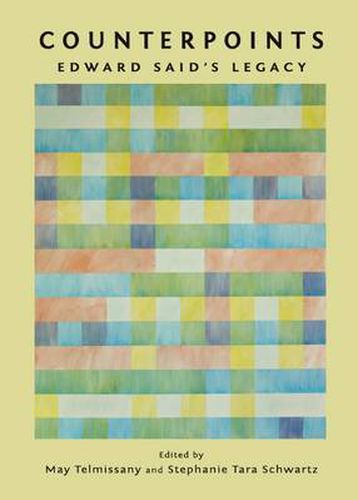Readings Newsletter
Become a Readings Member to make your shopping experience even easier.
Sign in or sign up for free!
You’re not far away from qualifying for FREE standard shipping within Australia
You’ve qualified for FREE standard shipping within Australia
The cart is loading…






Revolving around the theme of counterpoint extensively used by Edward Said as the interplay of diverse ideas and discrepant experiences, this book aims to explore Said’s contribution to the fields of comparative literature, literary criticism, postcolonial theory, exilic and transnational studies, and socio-political thought among many others. Overshadowed by his legitimate political positions in support to the Palestinian cause and at odds with Islamophobic hostilities, Said’s intellectual achievements in the fields of humanities and philosophical thinking should equally be acknowledged and celebrated. Said articulates his notion of counterpoints through a vivid description of the composition of Western classical music. In the counterpoint of Western classical music, various themes play off one another, with only a provisional privilege being given to any particular one; yet in the resulting polyphony there is concert and order, an organized interplay that derives from the themes, not from a rigorous melodic or formal principle outside the work. This book pays tribute to Said’s contrapuntal methodology as well as to his academic and humanistic legacy.
$9.00 standard shipping within Australia
FREE standard shipping within Australia for orders over $100.00
Express & International shipping calculated at checkout
Revolving around the theme of counterpoint extensively used by Edward Said as the interplay of diverse ideas and discrepant experiences, this book aims to explore Said’s contribution to the fields of comparative literature, literary criticism, postcolonial theory, exilic and transnational studies, and socio-political thought among many others. Overshadowed by his legitimate political positions in support to the Palestinian cause and at odds with Islamophobic hostilities, Said’s intellectual achievements in the fields of humanities and philosophical thinking should equally be acknowledged and celebrated. Said articulates his notion of counterpoints through a vivid description of the composition of Western classical music. In the counterpoint of Western classical music, various themes play off one another, with only a provisional privilege being given to any particular one; yet in the resulting polyphony there is concert and order, an organized interplay that derives from the themes, not from a rigorous melodic or formal principle outside the work. This book pays tribute to Said’s contrapuntal methodology as well as to his academic and humanistic legacy.